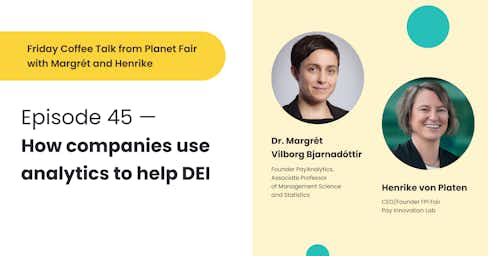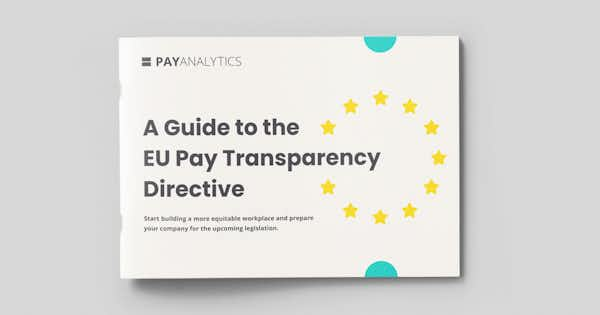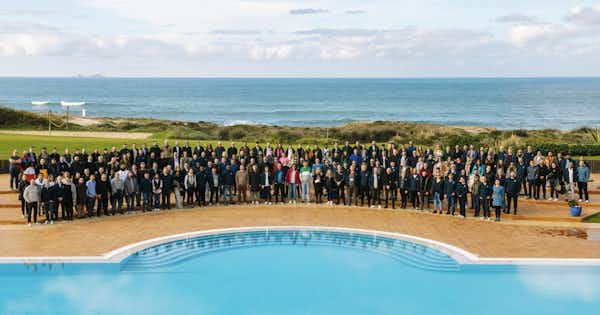Evróputilskipun um gagnsæi í launum | Sækja rafbók hér.

#45 - How companies use analytics to support DEI initiatives
This week, Margrét speaks to Henrike von Platen from San Diego, where World at Work’s Total Rewards ‘23 conference has just wrapped up. So the topic of the day? Major takeaways, of course, at the meeting point of people analytics, great data infrastructure, and DEI goals.
Connecting analytics, data infrastructure, and DEI
Margrét’s key takeaways, really, came down to connection – how we connect our learnings from people and pay analytics to our DEI efforts. How can we use people analytics tools for the good of DEI, to develop broader and deeper diversity programs?
From a technological standpoint, the big topics came down to one key element: The need to connect data from multiple sources, which may be dispersed across multiple systems, platforms, and tools. You’ve heard the familiar lament of “data silos” that make organizational operations of any type more difficult. A key element of doing people analytics well, with a long-term view, is to break down these silos and create a data infrastructure that’s solid, sound.
Good data supports DEI goals
Technology, the ubiquitous agent of our age, was at the top of the agenda for many presentations this week. It’s the ever-expanding backbone of work, and a key enabler of change on a massive scale—be it working from home during COVID, collaborating seamlessly and in real-time on hiring plans and salary increases, or managing million-dollar budgets with transparency. Technology touches every single part of our lives, and plays a critical role in career development, setting meaningful goals, and measuring progress against them.
But the tech we talked about at Total Rewards ‘23 transcended what we typically talk about in pay analytics (closing pay gaps, rewards, benefits and retirement inclusivity). First and foremost, what is the next logical step in the evolution of pay equity? How do we use the powerful information we’ve gleaned through analytics tools to support our broader DEI efforts?
In Margrét's words, “We’ve gotten really good at defining our goals, bringing in the data we need, analyzing that data, and measuring those outcomes. We can truly measure how we're doing in black and white. The thought is to take those learnings and apply them to broader DEI efforts, such as goal-setting for DEI.”
For example, Connie Cody, who was presenting on behalf of Coca-Cola at the conference, spoke to the measurable goals the world’s largest nonalcoholic beverage company has committed to. They will reach gender parity (i.e., 50%) in management roles by 2030. Their people analytics programs have been central in moving them toward a truly egalitarian management culture, beyond compensation, benefits, and bonuses. Currently, Coca-Cola’s executives are 38% women (up from about 30% in 2018), and middle managers are about 50% women (up from around 48%).
Auxiliary to this question, but no less important, is how employers can contribute to employee well-being. In order to do so, we must first take a critical look at our current workforce, define how we think of (and how they think of) health, security, safety, and then set meaningful goals toward achieving those.
Building fundamental metrics, each linked to diversity, equity, and inclusion, is the first practical step in connecting the dots between pay parity and a deep commitment to true equity, employee well-being, and inclusivity across the board.
Good data infrastructure makes change in days, not months
How can companies build a good data infrastructure to accelerate broad changes in policy and, for example, pay adjustments? And what type of growth can good data, when integrated and connected, enable?
Take Brazil’s iFood for example. Not only did they recently launch an initiative to offer training in technology and opportunities to impoverished communities, but they’ve also undertaken gender pay equity efforts. Graziele Rodrigues, manager of Total Rewards and Global Mobility, and Lilian Kazama, director of Total Rewards, at iFood, spoke about the impact good, integrated, data has had on their operations.
Very often, data is dispersed across compensation systems, HR systems, and others—and companies need to put in some elbow grease to marry those data sources before they can even begin their analysis.
Not so when you have already adopted a good data infrastructure. iFood is one such exemplar of data best practices.
Their project started with a question: “How do we make the merit process more efficient and unbiased?” And ended in 22 days. Well, in a manner of speaking.
From start to finish, they were able to implement a decision support system for their pay equity efforts in 22 days. And of those 22 days? 11 were spent testing the system. In less than month, they’d gathered the data they needed, assigned weights to each variable/criterion, and rolled out the system at scale across the organization.
As Margrét put it, “When organizations are thinking about ROI and adopting data infrastructure, this showed what you can do at scale and fast once you’ve done the plumbing and the ground floor. Then you can start building at amazing speed.”
Watch the video to learn how good data, analytics, and DEI goals can improve the well-being of your company—and your workforce.
Friday Coffee Talk from Planet Fair is a podcast/videocast series co-hosted by PayAnalytics founder Margrét Bjarnadóttir and Henrike Von Platen, founder and CEO of the FPI Fair Pay Innovation Lab in Berlin. It is available through all podcast platforms as well as on YouTube as a videocast.


